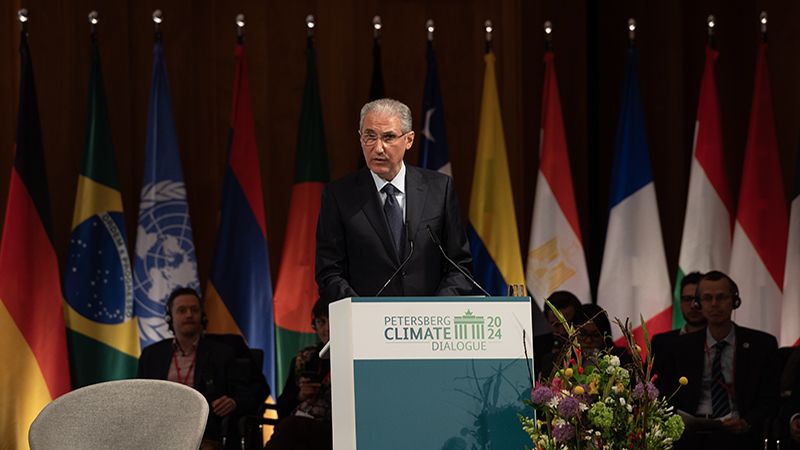Forming a new climate finance goal, setting National Adaptation Plans by 2025 and supporting the next generation of Nationally Determined Contributions are among the aims for COP29, according to the conference president-designate, Mukhtar Babayev.
During a speech at the Petersberg Climate Dialogue in Berlin, Babayev outlined his vision for COP29, set to take place in Baku, Azerbaijan, later this year. His plan is based on two mutually reinforcing pillars: enhancing ambition and enabling action.
To meet these objectives, the president-designate highlighted the critical role of finance in reducing emissions, adapting to climate change, and addressing loss and damage, explaining that “climate finance will be an important part of the negotiations at COP29” and adding that “finance is one of the key tools to turn ambition into action”.
As part of the address, the president-designate – who previously held the role of vice president of ecology at the state-owned petroleum company, SOCAR – sent a strong signal to the private sector, with hopes that companies would “come to COP29 ready to show how they are allocating capital and ensuring investment decisions are aligned with our climate goals”.
Multilateral Development Banks and International Financial Institutions were additionally noted as having a crucial role to play in helping to meet such goals, given their capacity to mobilise low-cost financing and catalyse higher volumes of private finance, as well as tackle debt and manage fiscal constraints.
In his remarks, the minister emphasised that the COP29 agenda must encompass many priorities, and not fixate on single issues such as finance or NDCs. The COP29 Presidency, he said, would “create a space for everyone to engage in dialogue”.
Babayev also reiterated a commitment to the goals of the Paris Agreement, stating that failure to meet the 1.5˚C goal “means people would be left behind”.
“We all have a moral duty to avoid this outcome”, he added, before describing the target as “our guiding compass” and emphasising that “our previous promises now need to be delivered, not re-interpreted. Fulfilled, not re-negotiated”.
The announcement of Azerbaijan as COP29 host has raised eyebrows among climate activists. Firstly, according to an article published by Fair Planet, Azerbaijan’s economy is heavily dependent on fossil fuels, primarily oil and gas, with the country’s oil exports constituting half of its GDP.
Further controversy came when the committee panel was initially revealed to have an all-male line-up before the summit eventually included 12 women in response to international criticism.








